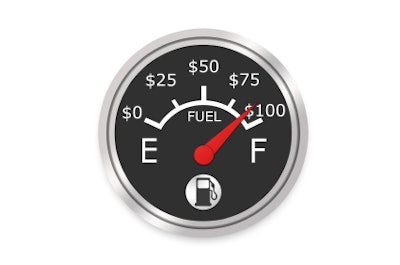
The U.S. food industry, which relies heavily on trucking to get product to its distributors and end consumers, is in a great position right now to influence the environmental sustainability of the industry by enthusiastically supporting the adoption of strong truck fuel efficiency and greenhouse gas standards, according to Jason Mathers, senior manager of supply chain logistics at the Environmental Defense Fund. Writing in the May Food Logistics, Mathers notes that substantial financial, as well as environmental, benefits would result.
It is expected that the Obama Administration will announce a new round of these standards in the coming weeks, Mathers notes. A comment period will follow the release of the proposal. This is a critical opportunity to underscore the long-term business and environmental gains that result from robust, cost-effective standards.
Existing fuel efficiency standards went into effect in 2014 and run through 2018. They will increase the fuel efficiency of tractor-trailers to an average of 7.0 mpg, up from 5.8 mpg in 2010. These standards will reduce the lifecycle cost of new trucks by $42 billion dollars, delivering significant value to manufacturers, trucking companies and freight shippers.
To read the full article, click: http://www.foodlogistics.com/article/12070878/food-shippers-could-reap-huge-savings-from-bold-fuel-efficiency-standards-may-2015-food-and-more-for-thought.















